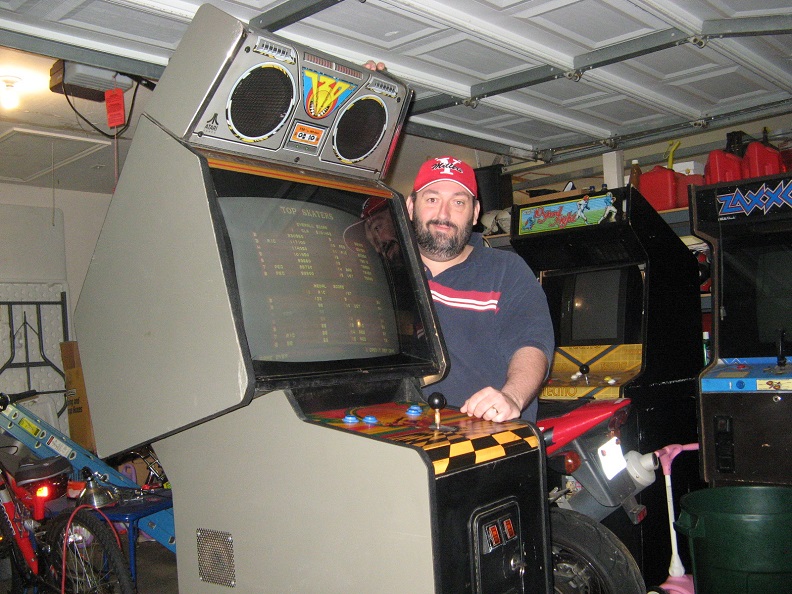In the winter of 2011, a homemade arcade’s LEDs pulsated for the final time. In Yukon, writer Rob O’Hara spent the better part of a decade meticulously building, curating, and refining a haven for vintage video game cabinets. O’Hara spent so much time doing so that he inevitably produced a text on the endeavor, Invading Spaces, in 2008. He wrote his other book, Commodork, in 2006 while also regularly maintaining a blog filled with countless articles on many of the same topics.
In the ’80s and early ’90s, O’Hara was heavily immersed in the underground warez (derived from “software”) community — think modern torrenting, but with a dial-up connection and shelves of floppy disks. This essentially was the internet before the World Wide Web, where one would take advantage of “Bulletin Board Systems” rather than easily accessible websites. Despite the national interconnectivity, O’Hara still found the culture to travel to the heartland at a sluggish pace.
“Movements seemed to start on the coasts and make their way very slowly to the Midwest,” O’Hara said. “There were a lot of fads I saw on television or read about in magazines long before I saw them in person in Oklahoma.”
O’Hara finds a bit of solace presently, however, through the internet — the “great cultural regulator,” as he called it. Despite not being as tangible as a local happening, the current digital landscape has rapidly increased the spread of trends. In terms of Nerdist culture, Oklahoma has witnessed an endless mass of conventions, like the Oklahoma Electronic Game Expo, SUPER! Bitcon, SoonerCon, and Tokyo in Tulsa, to mention a few O’Hara cited.
“At these cons, I meet hundreds of people that have the same interests as I do,” O’Hara said. “Honestly, they were there all along; we’re just better at finding each other now, I think.”
In Commodork, O’Hara wrote extensively on geekery and software piracy that, despite being almost second nature in 2015, was incredibly inclusive during the net’s infancy. Despite being wrist-deep in the primordial ooze of the web, the book suggests that Oklahoma didn’t carry much of its own unique impact.
“As time went on we kind of learned the opposite,” O’Hara said. “Ten years after publishing, I still get email from people who have just discovered and read the book. Growing up, these people had the exact same experiences I had.”
This flood of feedback came from all corners of the world, including Canada, Portugal, the U.K., and Brazil. Consistently, O’Hara found himself arriving at the same conclusion.
“Back then, I felt very secluded from the rest of the world,” he reflected. “I suspect all of those people felt the same way.”
Starting as a childhood fixation, O’Hara’s compulsion to write followed him throughout the majority of his life, as he interned at the El Reno Light and El Reno Tribune in high school. But the lack of compensation for a young writer propelled O’Hara towards the service industry and eventually into his current field of information technologies. Despite not writing for a living, O’Hara has contributed to several major hobbyist websites, including IGN and The Retroist.
“Somewhere along the way, I gave up on that dream of writing for a living,” O’Hara said. “But, thanks to the internet, I work during the day and get to write at night. Again, the internet is a heck of an equalizer.”





